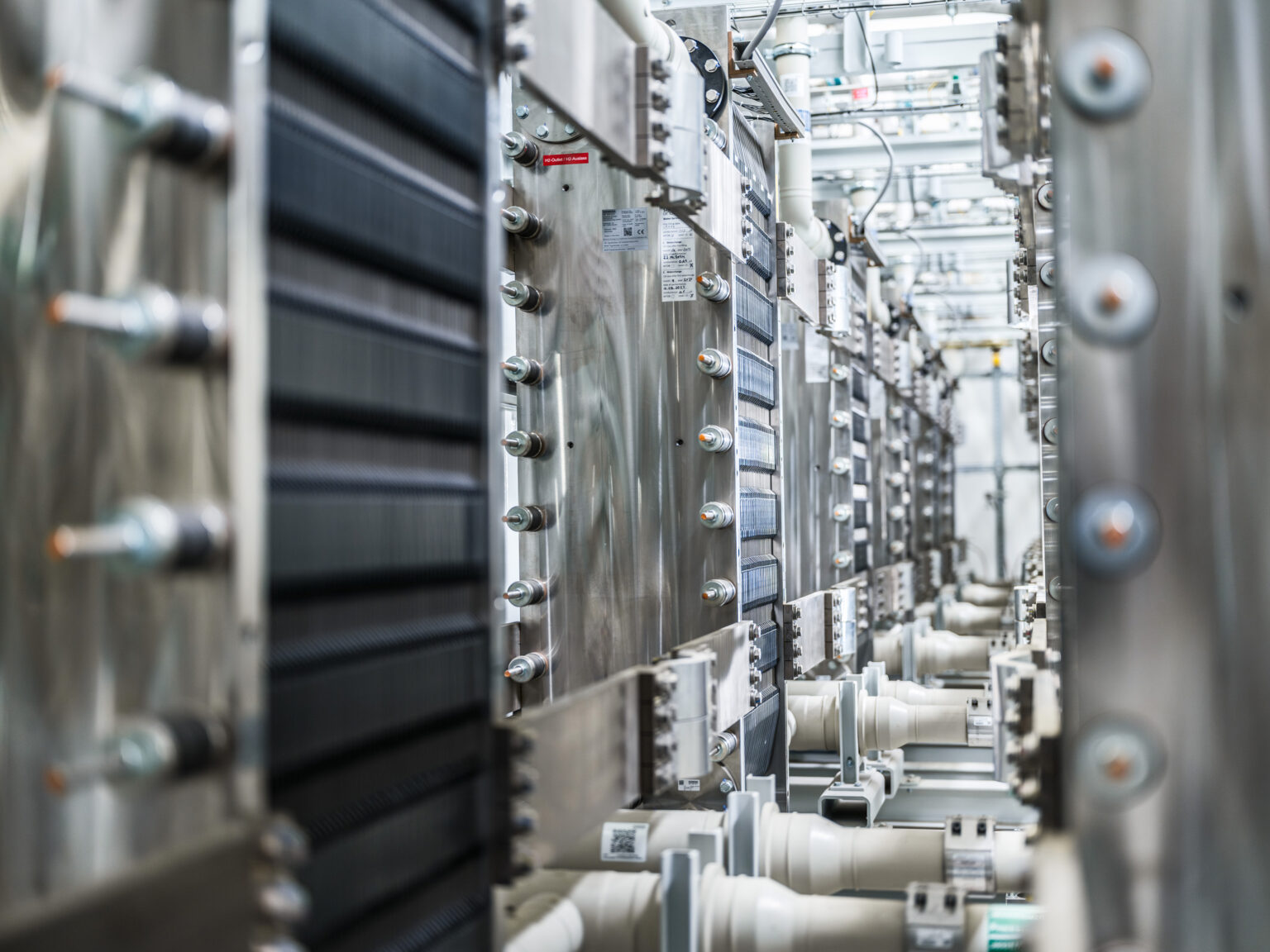Germany’s chemical industry took a significant step toward decarbonization as BASF launched operations of the country’s largest proton exchange membrane (PEM) electrolyzer at its Ludwigshafen site. The 54-megawatt facility can produce up to one metric ton of zero-carbon hydrogen hourly, potentially reducing the site’s greenhouse gas emissions by 72,000 metric tons annually.
The €149.3 million project—funded through a public-private partnership with €124.3 million from government sources and €25 million from BASF—represents a critical test case for integrating hydrogen production directly into existing chemical manufacturing infrastructure. The project’s implementation demonstrates the practical challenges of scaling green hydrogen within Europe’s largest chemical complex.
Developed in cooperation with Siemens Energy, the electrolyzer’s 72 stacks are now connected to Ludwigshafen’s hydrogen Verbund network, distributing the feedstock throughout the site’s production facilities. This integration model aims to validate whether large-scale electrolyzers can effectively replace traditional natural gas-based steam reforming methods that currently dominate industrial hydrogen production.
“The commissioning makes it possible for us to support our customers in achieving their climate targets by offering products with a lower carbon footprint,” said Katja Scharpwinkel, BASF Board member and Ludwigshafen Site Director, highlighting the commercial strategy behind the investment. The company plans to leverage this production capacity for applications including ammonia, methanol, and vitamin synthesis—all hydrogen-intensive processes.
Financial analysis suggests the project’s economics remain heavily dependent on government support, with public funding covering approximately 83% of the installation costs. This funding model underscores ongoing questions about cost competitiveness in the scaling of green hydrogen technologies without substantial subsidies.
The Hy4CHem project was selected under Germany’s IPCEI Hydrogen (Important Project of Common European Interest) framework, with Rhineland-Palatinate contributing €37.3 million of the government portion. This regional investment reflects the state’s strategic focus on maintaining industrial competitiveness while pursuing decarbonization targets.
“With the Hy4Chem project, BASF is demonstrating how the transformation of the energy-intensive chemical industry can succeed—innovatively, sustainably, and internationally competitively,” noted Alexander Schweitzer, Minister-President of Rhineland-Palatinate.
Beyond its production role, the electrolyzer serves as a market development mechanism. BASF has indicated plans to supply hydrogen for mobility applications in the Rhine-Neckar Metropolitan Region, potentially establishing new revenue streams and supporting regional hydrogen infrastructure development.
The project’s technical approach centers on renewable electricity sourcing—though specific power procurement arrangements were not detailed in the announcement. The effectiveness of carbon emission reductions will ultimately depend on the consistent availability of renewable energy to power the electrolyzer at scale.
Industry analysts note this installation represents approximately 13.5% of Germany’s current electrolyzer capacity, marking a significant but still incremental step toward the country’s 2030 target of 10 gigawatts. The project’s performance metrics will provide critical data points for policymakers evaluating the pace and funding requirements of Germany’s hydrogen strategy implementation.
As industrial manufacturers face mounting pressure to decarbonize operations, BASF’s approach demonstrates one potential pathway for chemical producers to begin transitioning away from fossil-based hydrogen while maintaining production capabilities and testing new market opportunities. The project’s operational data will likely influence investment decisions across Europe’s chemical sector as companies evaluate similar carbon reduction strategies.





